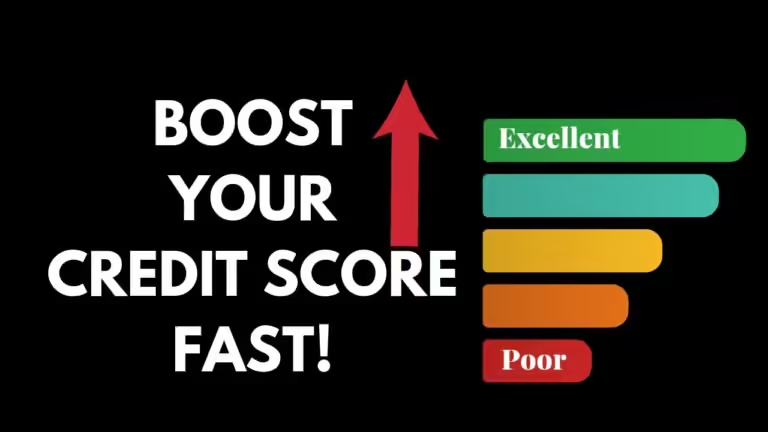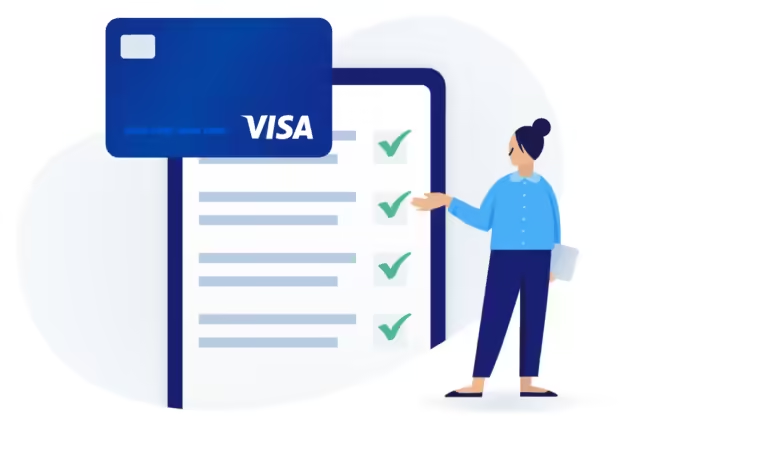Steps to Establish Credit for Students
To establish credit, students should start with a secured credit card or become an authorized user. They must also consistently pay bills on time.
Building credit early is crucial for students. A good credit score opens up many financial opportunities, such as loans and favorable interest rates. The first step often involves obtaining a secured credit card, where a cash deposit serves as collateral.
Another effective method is becoming an authorized user on a family member’s credit card. Paying bills on time and keeping balances low are essential habits. These steps help students create a strong credit history, which is beneficial for future financial endeavors. Understanding and managing credit wisely sets the foundation for a stable financial future.
Importance Of Credit
Understanding the importance of credit is crucial for students. Good credit can open many doors. It affects your ability to get loans, rent apartments, and even job opportunities. Establishing credit early can set you on the path to financial success.
Why Credit Matters
Credit is like a report card for your financial life. It shows how responsible you are with money. Lenders use your credit score to decide if they should lend you money. A good score can mean lower interest rates.
Here are some reasons why credit is important:
- Lower Interest Rates: Good credit can save you money on loans.
- Better Loan Approval: Lenders trust those with good credit.
- Rental Opportunities: Landlords check credit scores before renting.
- Job Prospects: Some employers review credit reports for hiring.
Long-term Benefits
Building good credit early has long-term benefits. It can help you buy a house or start a business. Good credit can also improve your financial stability.
Let’s look at some long-term benefits in detail:
| Benefit | Description |
|---|---|
| Home Ownership | Good credit can help you get a mortgage with low interest rates. |
| Business Loans | Good credit makes it easier to get loans to start a business. |
| Financial Stability | Good credit can help you in emergencies by accessing credit lines. |
In short, establishing good credit early can benefit you throughout your life. It gives you more financial options and security.
Understanding Credit Scores
For students, understanding credit scores is crucial. A credit score affects your financial future. It determines loan approvals, interest rates, and even renting an apartment. Knowing how these scores work helps you make better financial decisions. Let’s explore the basics and the factors that influence credit scores.
Credit Score Basics
A credit score is a number. It represents your creditworthiness. Scores range from 300 to 850. Higher scores mean better credit. Lenders use these scores to assess risk. A high score means you are less risky. A low score means more risk.
| Score Range | Rating |
|---|---|
| 300-579 | Poor |
| 580-669 | Fair |
| 670-739 | Good |
| 740-799 | Very Good |
| 800-850 | Excellent |
Factors Influencing Scores
Several factors influence your credit score. These factors include:
- Payment History: Paying on time boosts your score.
- Credit Utilization: Keep balances low on credit cards.
- Credit History Length: Longer history equals a higher score.
- New Credit: Opening new accounts can lower your score.
- Credit Mix: Having different types of credit helps.
Understanding these factors helps you maintain a good credit score. Pay attention to each one to build strong credit.
Opening A Bank Account
Opening a bank account is the first step for students to build credit. It lays the foundation for future financial activities and helps manage money effectively.
Choosing The Right Bank
Choosing the right bank is crucial. Consider factors like fees, services, and location.
- Look for banks with low fees.
- Check if the bank has a nearby branch.
- Ensure the bank offers online banking.
- Review customer service ratings.
By selecting a bank that meets your needs, you can avoid unnecessary costs and hassles.
Types Of Accounts
There are different types of accounts to consider.
| Account Type | Description |
|---|---|
| Checking Account | Used for daily transactions and bill payments. |
| Savings Account | Helps save money and earn interest. |
| Student Account | Designed for students with low or no fees. |
Opening both a checking and a savings account can provide flexibility and savings potential.
Secured Credit Cards
Establishing credit as a student can be challenging. One effective method is using secured credit cards. These cards help build your credit score with low risk. Let’s explore how secured credit cards work and how you can use them effectively.
What Is A Secured Card?
A secured credit card is a type of credit card backed by a cash deposit. This deposit acts as your credit limit. For example, if you deposit $500, your credit limit is $500. This lowers the risk for the bank.
Secured cards are easier to get than regular credit cards. They are perfect for students with no credit history.
How To Use Them
Using a secured credit card wisely can help build your credit. Here are some steps:
- Make small purchases each month. This shows you are using the card.
- Pay your balance in full every month. This avoids interest charges.
- Keep your balance low. Aim to use less than 30% of your credit limit.
- Monitor your credit score regularly. Track your progress and make adjustments.
Following these steps will help improve your credit score. Over time, you can qualify for better credit cards and loans.
Here is a quick comparison of secured credit cards:
| Card | Deposit Required | Annual Fee | APR |
|---|---|---|---|
| Card A | $200 | $29 | 22.99% |
| Card B | $300 | No Fee | 24.99% |
| Card C | $500 | $39 | 19.99% |
Choose a card that suits your needs and budget. Start building your credit today with a secured credit card.
Authorized User On A Card
Establishing credit as a student can be challenging. One effective method is becoming an authorized user on a credit card. This strategy allows you to build a credit history without having your own card.
Benefits Of Being An Authorized User
- Build Credit History: Your credit history starts building immediately.
- Learning Opportunity: You learn responsible credit usage.
- Low Risk: The primary cardholder remains responsible for payments.
- Access to Funds: You get access to emergency funds.
How To Become One
- Choose a Trustworthy Person: Ask a family member or friend.
- Check the Card’s Policy: Ensure the card allows authorized users.
- Request Addition: The primary cardholder contacts the issuer.
- Monitor Your Credit: Regularly check your credit report.
By following these steps, students can build a solid credit foundation. Becoming an authorized user is a smart and easy way to start.
Student Loans And Credit
Establishing credit as a student is crucial for future financial stability. One significant way students can build credit is through student loans. Understanding the impact of student loans on your credit score and managing them responsibly can set the foundation for a healthy credit profile.
Impact On Credit
Student loans play a big role in your credit history. Timely payments on student loans can boost your credit score. Late or missed payments can harm your credit score significantly.
Here is how student loans impact your credit:
- Credit Mix: Having a mix of credit types, including student loans, can improve your credit score.
- Payment History: Regular payments build a positive payment history.
- Debt Amount: The amount you owe on your student loans affects your debt-to-income ratio.
Managing Loans Responsibly
Managing your student loans responsibly is key to maintaining a good credit score. Here are some tips:
- Create a Budget: Track your income and expenses to ensure you can make loan payments on time.
- Set Up Automatic Payments: This helps ensure you never miss a payment.
- Communicate with Lenders: If you face financial difficulties, contact your lender to discuss options.
Responsible loan management includes understanding the terms of your loan. Know your interest rates, repayment options, and any available deferment or forbearance opportunities.
| Tip | Description |
|---|---|
| Track Payments | Keep a record of all payments made. |
| Review Statements | Regularly check your loan statements for errors. |
| Stay Informed | Stay updated on any changes in loan terms. |
Building Credit Responsibly
Establishing credit while in school can seem hard. But it is very important. Credit affects many parts of life. You need good credit for loans, renting apartments, and even some jobs. To build credit, you must act responsibly.
Timely Payments
Paying your bills on time is key. Late payments hurt your credit score. Make sure to pay at least the minimum payment on credit cards. Set reminders or use auto-pay options. This helps ensure you never miss a due date.
Here are some tips to help with timely payments:
- Use a calendar to track due dates.
- Set up alerts on your phone.
- Link your bills to a bank account for automatic payments.
Maintaining Low Balances
Keeping low balances on your credit cards is important. High balances can lower your credit score. Try to use less than 30% of your credit limit.
Consider these steps to maintain low balances:
- Check your credit card balance often.
- Pay off your balance in full each month.
- Avoid using your credit card for non-essential purchases.
Here is a simple table to help understand the impact of credit card balances:
| Credit Limit | Recommended Balance |
|---|---|
| $1,000 | Less than $300 |
| $2,000 | Less than $600 |
| $3,000 | Less than $900 |
Remember, building credit is a long-term commitment. Start small, be consistent, and act responsibly. Your future self will thank you.
Monitoring Credit Reports
Monitoring your credit reports is crucial for students establishing credit. Regular checks help spot errors and prevent identity theft. Understanding your credit report helps you make informed financial decisions.
Importance Of Regular Checks
Regularly checking your credit report is important. It helps you stay informed about your credit status. Early detection of errors can prevent future issues.
Identity theft is a growing concern. Monitoring your credit report helps you catch any suspicious activities. This can save you from significant financial loss.
Regular checks can also improve your financial habits. By seeing your spending habits, you can make better choices. This will boost your credit score over time.
How To Access Reports
Accessing your credit report is simple. You can get a free report annually from each of the three major credit bureaus. These bureaus are Experian, Equifax, and TransUnion.
Visit AnnualCreditReport.com to request your free report. You can also request reports directly from the credit bureaus’ websites.
Here is a quick guide to access your credit reports:
- Go to AnnualCreditReport.com.
- Enter your personal information.
- Select which bureau’s report you want to view.
- Answer security questions to verify your identity.
- Download or print your report for review.
Review your report carefully. Look for any errors or suspicious activities. If you find an error, contact the credit bureau to correct it.
| Credit Bureau | Website | Contact Number |
|---|---|---|
| Experian | www.experian.com | 1-888-397-3742 |
| Equifax | www.equifax.com | 1-800-685-1111 |
| TransUnion | www.transunion.com | 1-800-916-8800 |
Frequently Asked Questions
How Can Students Start Building Credit?
Students can start building credit by opening a student credit card. They should make small purchases and pay the balance in full each month.
What Is The Best First Credit Card For Students?
The best first credit card for students is typically a student credit card. These cards have lower credit limits and offer educational resources.
Can Students Get A Credit Card With No Credit History?
Yes, students can get a credit card with no credit history. Secured credit cards and student credit cards are good options.
Why Is It Important For Students To Build Credit?
Building credit early helps students qualify for loans and better interest rates in the future. It also teaches financial responsibility.
Conclusion
Building credit as a student is essential for future financial success. Start with a secured credit card. Always pay bills on time to avoid late fees. Monitor your credit score regularly. These steps will set you on the right path.
Establishing good credit now can open many doors later in life.









